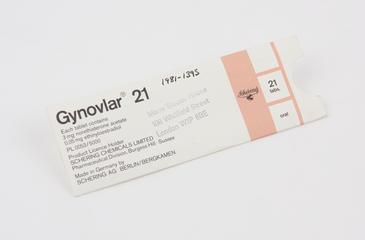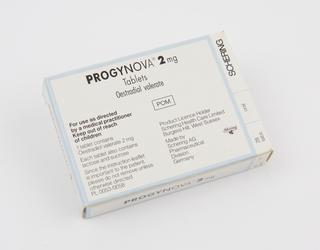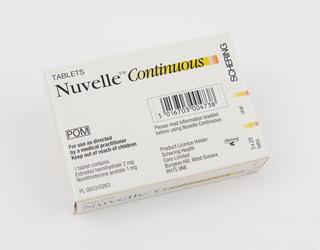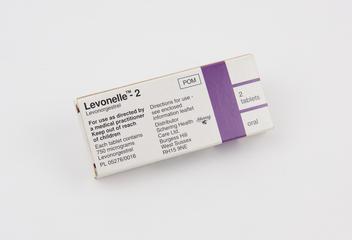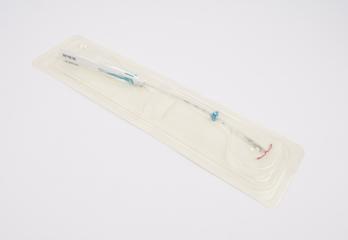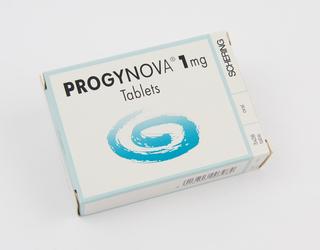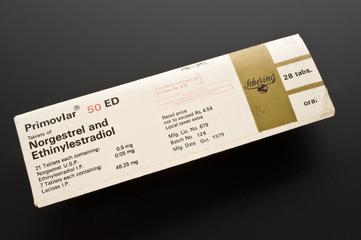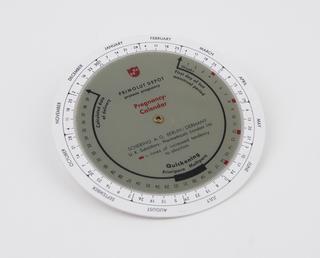
Schering AG
- occupation:
- Manufacturer of pharamacueticals
- Nationality:
- German
- born in:
- Berlin, Berlin state, Germany
1851 - founded by Ernst Schering (1824-1889), known initially as Green Pharmacy; name later changed to E. Schering;
More
1871 - factory converted into a public limited company Chemische Fabrik auf Actien;
1876 - Schering & Glatz, Inc. New York and Bloomfield, New Jersey, United States, founded as first overseas affiliate;
1880 - Charlottenburg branch opened
1888 - chemist Albrecht Schmidt leading work in the first scientific laboratory
1890 - Piperazin, first pharmaceutical product marketed
1901 - first synthetic camphor patented by Schering
1921 - medical-science department established.
1923 - research into sex hormones and cancer begins
1924 - research partnership with Eugen Steinach and his assistant Walter Hohlweg intensified to develop a hormone cycle preparation
1927 - Berlin Chemische Fabrik C.A.F. Kahlbaum GmbH and the Chemische Fabrik auf Actien (formerly E. Schering) amalgamated to form Schering-Kahlbaum AG
1928 - Progynon, first hormone preparation introduced
1929 - Schering Corporation founded in New York, United States, the first US subsidiary
1932 - semi-synthetic Oestradiol and Proluton already on market; Proviron, first androgen preparation for the treatment of male hormone-related conditions marketed.
1937 - Kokswerke and Chemische Fabriken AG acquire the entire capital of their subsidiary Schering-Kahlbaum AG and the newly created company changes its name to Schering AG
1938 - Hans Herloff Inhoffen and W. Hohlweg develop ethinylestradiol an effective oral estrogen and still a constituent of oral contraceptives (the pill) in 2010.
1943 - 22/23 November - administration building and main stores of the Berlin, Wedding plant destroyed during WW2 air raid
1945 - All Schering works dismantled after WW2. All production and distribution companies throughout the world liquidated, expropriated or confiscated and trademarks and patents lost. The name Schering could no longer be used in many large markets.
1950 - trademark rights not regained. new trademarks created such as Berlimed.
1953 - Biligrafin and Urografin, new X-ray contrast media introduced
1954 - Proluton-Depot, a steroid for progestational therapy introduced
1956 - Progynon-Depot, hormone preparations for estrogen therapy introduced; Testoviron-Depot for androgen therapy introduced.
1957 - Charlottenburg works set up a microbiological department for the manufacture of corticoids
1961 - Anovlar®, Schering's first oral contraceptive, introduced to Germany and Australia and first preparation for hormonal contraception to be offered in Europe
1964 - Anovlar® 21 offered in a calendar pack blister pack invented by Schering
1973 - Microgynon® low-dosed contraceptive introduced (mini-pill); Androcur® introduced by Schering research;
1974 - Nihon Schering K.K., Osaka becomes subsidiary of Schering AG
1978 - Diane®, preparation based on cyproterone acetate introduced.
1979 - Triquilar®, a three phase preparation, introduced - a well-tolerated, low-dose oral contraceptive better adapted physiologically to the woman's cycle; Berlex Laboratories Inc., Cedar Knolls, New Jersey, United States founded.
1987 - Magnevist®, marketed in Germany, Japan and United States as a contrast medium for magnetic resonance imaging (MRI).
1988 - Schering agrees with the US American company Schering-Plough Corporation so that the Schering name can be used everywhere in the world except United States and Canada.
1990 - Glucobay®/Precose® developed as new treatment for diabetes
1993 - Betaseron® for treatment of multiple sclerosis, licensed in the United States
1996 - Schering acquires Leiras Group
1997 - Mirena®, intrauterine system of hormonal contraception introduced
2000 - Schering acquires Mitsui Pharmaceuticals, Inc., Japan
2003 - Nihon Schering Research Center, opens in Kobe, Japan
2006 - Schering AG officially renamed Bayer Schering Pharma AG after a takeover by Bayer.
Specialisations include ontology and gynaecological products, especially contraceptive pills.
